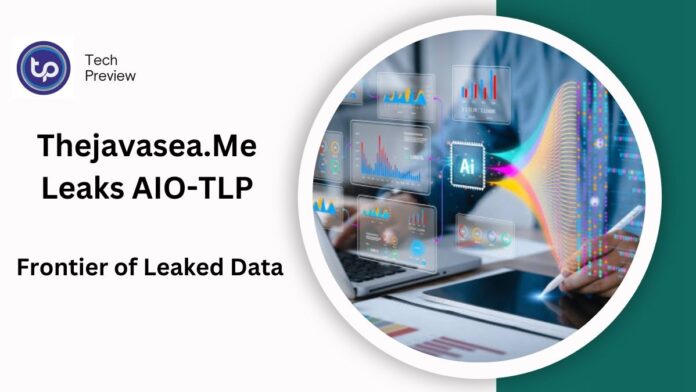The rise of platforms like Thejavasea.Me Leaks AIO-TLP marks a significant shift in how information is accessed, shared, and exploited in the digital age.
It’s no longer just about leaked emails or documents, it’s about democratizing information that was once hidden behind secure walls. As this platform gains traction, it brings forth new questions about ethics, privacy, and cybersecurity.
In this article, we’ll explore the Thejavasea.Me Leaks AIO-TLP phenomenon, its implications on the digital landscape, and the ethical dilemmas it presents for both users and the organizations impacted by these leaks.
What is Thejavasea.Me Leaks AIO-TLP?
Thejavasea.Me is an online platform that functions as an All-In-One Traffic Light Protocol (AIO-TLP) repository for leaked information. AIO-TLP is typically a framework for categorizing information by its level of sensitivity.
However, in the case of Thejavasea.me, this framework is used to sort different types of leaked data ranging from corporate documents to personal files.
Over the years, the platform has gained notoriety for hosting a treasure trove of confidential data, which can include anything from personal identities to government secrets.
Though cloaked in anonymity, the platform’s operation raises significant concerns about the legality and ethics of such widespread data access.
The Ethical Dilemma
One of the most pressing questions raised by Thejavasea.Me is the ethical implications of accessing leaked information. When users interact with content that was obtained without consent, they find themselves in a moral grey area.
Should you consume information that wasn’t meant to be public?
While some argue that transparency and whistleblowing serve the public good, others worry about the violation of privacy and potential harm caused by exposing individuals or sensitive data.
For instance, exposing personal medical or financial records could lead to identity theft, fraud, or emotional distress for the individuals involved.
Moreover, legal risks are inherent in sharing or even accessing leaked data. Depending on your jurisdiction, engaging with such information could make you liable for legal action, especially if it involves intellectual property or confidential government data.
How Do Leaks Happen?
The leaks were found on platforms like Thejavasea.Me often stem from several sources, including:
- Hacking: Cybercriminals breach databases to steal sensitive data.
- Insider Threats: Employees or insiders with access to data may leak it, intentionally or accidentally.
- Phishing Attacks: Users are tricked into providing their credentials, which leads to data breaches.
- Poor Security: Weak passwords or outdated systems leave data vulnerable.
These methods illustrate the vulnerability of modern information systems, even with improved security measures.
The Impact on Digital Privacy
The digital revolution has allowed more data to be shared than ever before. However, this has also increased the risk of data breaches and cybersecurity threats.
The Thejavasea.Me leaks have exposed vulnerabilities in government institutions, corporations, and even personal data. Such leaks could lead to identity theft, corporate espionage, or significant reputational damage.
Furthermore, the legal landscape surrounding leaks is often murky, creating difficulties for both individuals and organizations affected by the platform.
In many cases, even if the leaks are used for seemingly noble causes like exposing corruption or holding corporations accountable, the ethical and legal implications cannot be ignored.
Why Does Thejavasea.Me Leaks AIO-TLP Matter?
- Democratization of Information:
The platform provides a level of access to data previously confined to governments or large corporations. This, in turn, can empower whistleblowers, journalists, and activists who use the information to shed light on wrongdoings. This has led to revelations that have sparked public debates and even influenced policy changes. - Cybersecurity Threats:
With millions of records available on the platform, cybersecurity experts warn of the risks that come with such leaks. Financial fraud, identity theft, and corporate espionage are just a few of the potential consequences that come from mishandled or unprotected data. - Ethical Responsibility:
Users of Thejavasea.Me must weigh the consequences of their actions. Accessing and sharing leaked information not only exposes the user to legal action but also raises ethical questions about privacy violations.
How to Protect Yourself Online
While it is nearly impossible to guarantee 100% protection from data leaks, you can take steps to minimize your risk:
- Use Strong Passwords: Ensure that your passwords are long, unique, and changed regularly.
- Enable Two-Factor Authentication (2FA): This adds an extra layer of security to your accounts, making them harder to breach.
- Monitor Accounts for Unusual Activity: Stay vigilant for any unauthorized activity in your bank, social media, or email accounts.
- Educate Yourself About Phishing Scams: Many data breaches start with phishing attacks, where hackers trick users into giving them access.
The Future of Platforms Like Thejavasea.Me
As digital information becomes more accessible, platforms like Thejavasea.Me Leaks AIO-TLP will continue to challenge the boundaries of privacy, security, and ethics.
It’s likely that we will see stronger data protection laws and more sophisticated security technologies emerge in response to the growing risks posed by such leaks.
At the same time, the platform is likely to evolve as users become more adept at navigating the complex world of leaked data. However, the ethical debate surrounding the use and distribution of this information will continue to shape public discourse.








